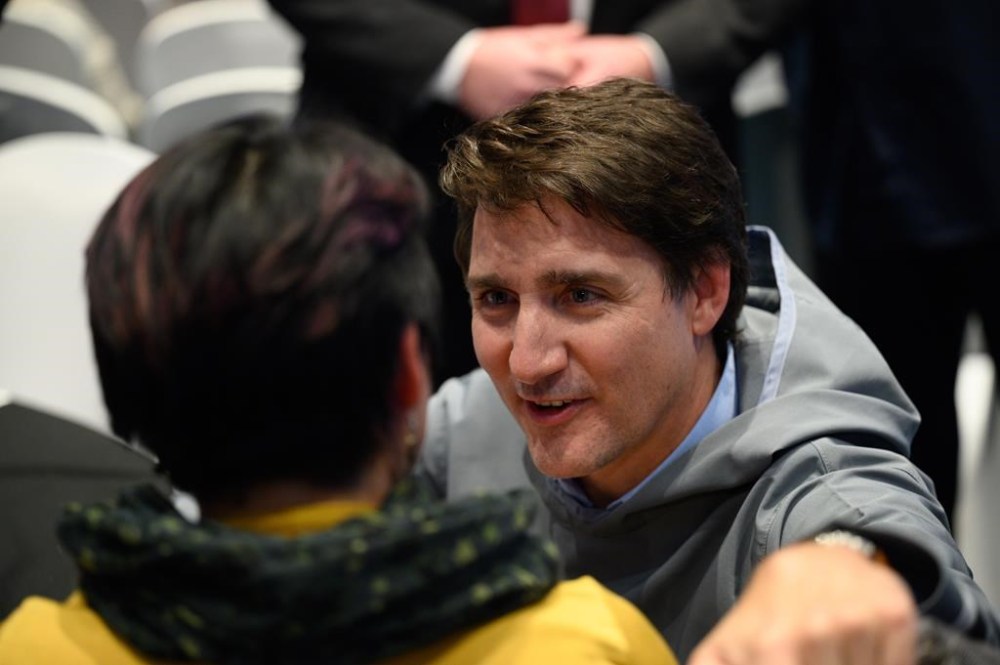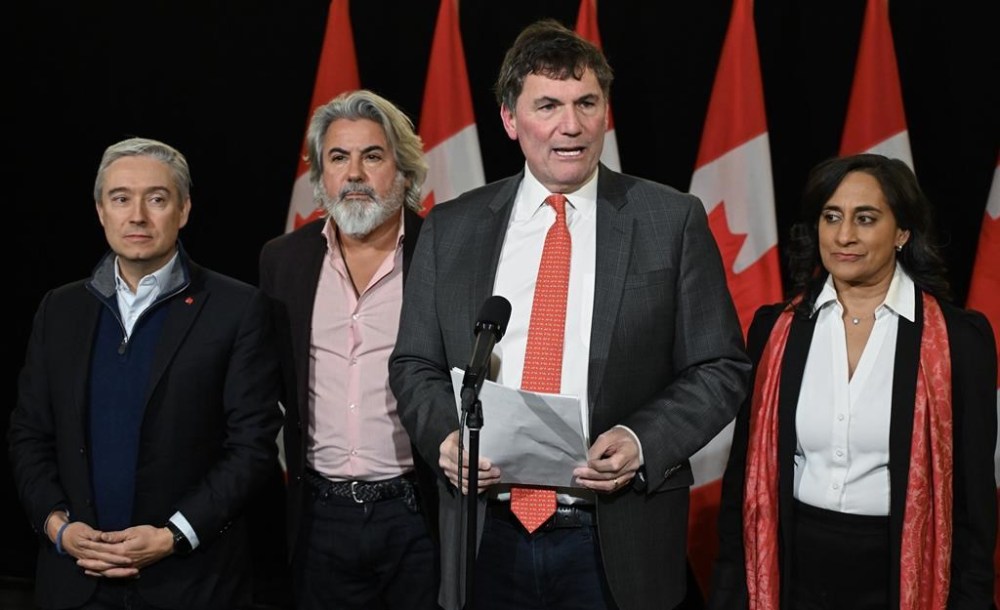Economics, affordability top agenda as Liberal cabinet meets in Montreal
Advertisement
Read this article for free:
or
Already have an account? Log in here »
To continue reading, please subscribe:
Monthly Digital Subscription
$0 for the first 4 weeks*
- Enjoy unlimited reading on winnipegfreepress.com
- Read the E-Edition, our digital replica newspaper
- Access News Break, our award-winning app
- Play interactive puzzles
*No charge for 4 weeks then price increases to the regular rate of $19.00 plus GST every four weeks. Offer available to new and qualified returning subscribers only. Cancel any time.
Monthly Digital Subscription
$4.75/week*
- Enjoy unlimited reading on winnipegfreepress.com
- Read the E-Edition, our digital replica newspaper
- Access News Break, our award-winning app
- Play interactive puzzles
*Billed as $19 plus GST every four weeks. Cancel any time.
To continue reading, please subscribe:
Add Free Press access to your Brandon Sun subscription for only an additional
$1 for the first 4 weeks*
*Your next subscription payment will increase by $1.00 and you will be charged $16.99 plus GST for four weeks. After four weeks, your payment will increase to $23.99 plus GST every four weeks.
Read unlimited articles for free today:
or
Already have an account? Log in here »
Hey there, time traveller!
This article was published 21/01/2024 (666 days ago), so information in it may no longer be current.
MONTREAL – One of the federal government’s top priorities for the year ahead involves attracting new international grocers to Canada to expand competition and drive down prices, Industry Minister François-Philippe Champagne said Sunday as a cabinet retreat was about to begin in Montreal.
The entire federal cabinet is in the city for a three-day retreat ahead of the return of Parliament on Jan. 29 and the next federal budget expected later this winter.
With cost-of-living issues still top of mind for Canadians, and signs in the polls that voters are growing ever crankier with the federal Liberals for being unable to provide much relief from rising prices, the ministers are trying to use the meeting to hone in on policies that may help.

Food prices are among the top issues, with food inflation in December still close to five per cent, well above overall inflation which was pegged at 3.4 per cent last month.
Champagne said stabilizing food prices will partially depend on introducing more competition, with just five companies accounting for more than 80 per cent of Canada’s grocery industry.
“If last year it was all about batteries, this year is all about competition,” he said, referring to a spate of massive new electric-vehicle battery plant announcements in 2023.
Champagne said he has been in talks with foreign grocers, who are more interested now that Canada has made some changes to its competition laws. Last year’s adjustments include, he said, more ability to limit restrictions on leases that can keep out competition near existing grocery stores.
The Liberals come into the retreat badly trailing the Conservatives in the polls. The last cabinet meeting in August was also promoted as an attempt to have an all-of-government focus on affordability and housing. There were moves in the fall, including taking the GST off new rental construction projects as well as the updates to the Competition Act.
But they did nothing to slow the Liberals slide in the polls, which Treasury Board President Anita Anand insisted the government is not focused on.
“The premise of your question suggests that we’re here to respond to the numbers in the polling, and that is not the case,” said Anand.
“What we are here to do is to fight for Canadians every single day in terms of what is needed in times of high inflation and high interest rates. That’s why we’re here with the Canada Child Benefit. That’s why we’re here with $10-a-day childcare. That’s why we’re here with affordable housing.”
Officials in the office of Prime Minister Justin Trudeau indicated last week that cabinet members would be discussing how various programs, such as those Anand listed, are currently working to help Canadians.
Ministers will be hearing from multiple panels of experts on the economy and housing on Monday, and on U.S.-Canada relations on Tuesday. The latter comes as Canada’s largest trading partner moves into a presidential election year that could see Donald Trump return to the White House.
The cabinet retreat comes as economists warn of the potential for at least a mild recession in Canada in 2024, turning up the pressure on the government and potentially heralding more doom-and-gloom for Canadians.
Among the experts will be Frances Donald, the chief economist at Manulife Financial, which warned in its 2024 forecast on Jan. 18 that the economy is starting the year from a position of weakness and uncertainty. Manulife’s expectation is that the worst economic news will be over by mid-year but not without causing at least some short-term pain.
Canadians are slowing their spending and growing nervous about their job security, Manulife warned, and more Canadians will be forced to renew their mortgages this year at rates often two to three times what they were before.

Dominique Lapointe, Manulife’s global macro strategist who penned the forecast, said a lot of economic realities in 2024 will depend on what the Bank of Canada does with interest rates.
The central bank’s aggressive interest rate hikes to counter inflation peaked in July at five per cent, and haven’t been touched since. Economists have predicted the bank will begin to cut that rate down in the spring, but sticky inflation numbers have some hedging that bet now.
The first chance to see what the bank will do comes Wednesday, the day after the cabinet retreat ends.
Housing is another key discussion point, along with immigration and how the two are increasingly linked.
Mike Moffatt, an economics professor and housing expert from Western University, said with Canada’s population still soaring — almost entirely due to immigration — housing supply is falling further behind.
The Canada Mortgage and Housing Corporation said last year Canada is short about 3.5 million homes, and Moffatt said that number is “probably even larger” now.
Immigration and its impact on housing will play an outsized role in discussions in Montreal. The government has already been talking about tying student visa approvals to available housing, and is under pressure to expand that to more immigration approvals as well.
Canada currently has a target of welcoming 485,000 newcomers this year.
This report by The Canadian Press was first published Jan. 21, 2024.


